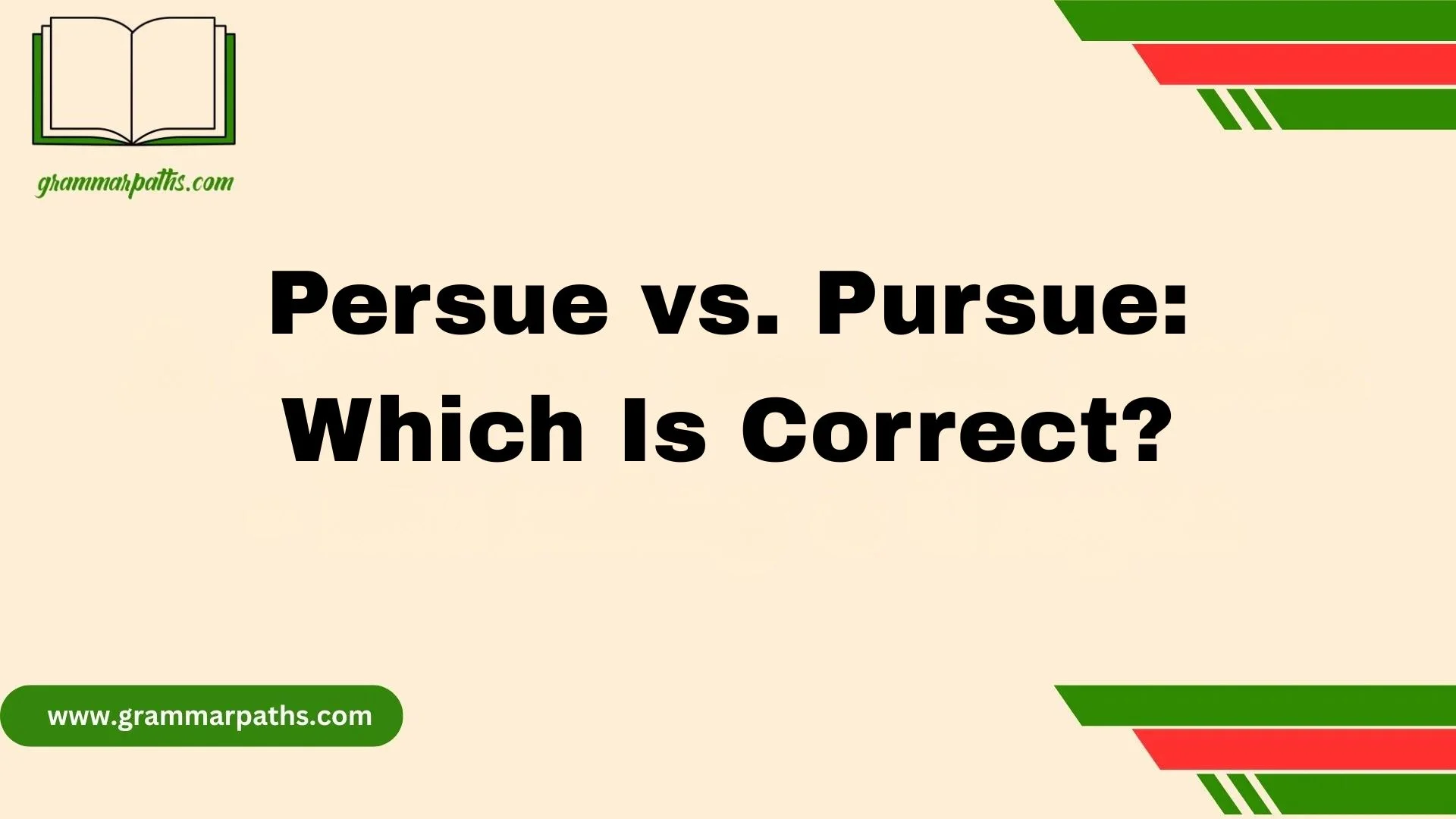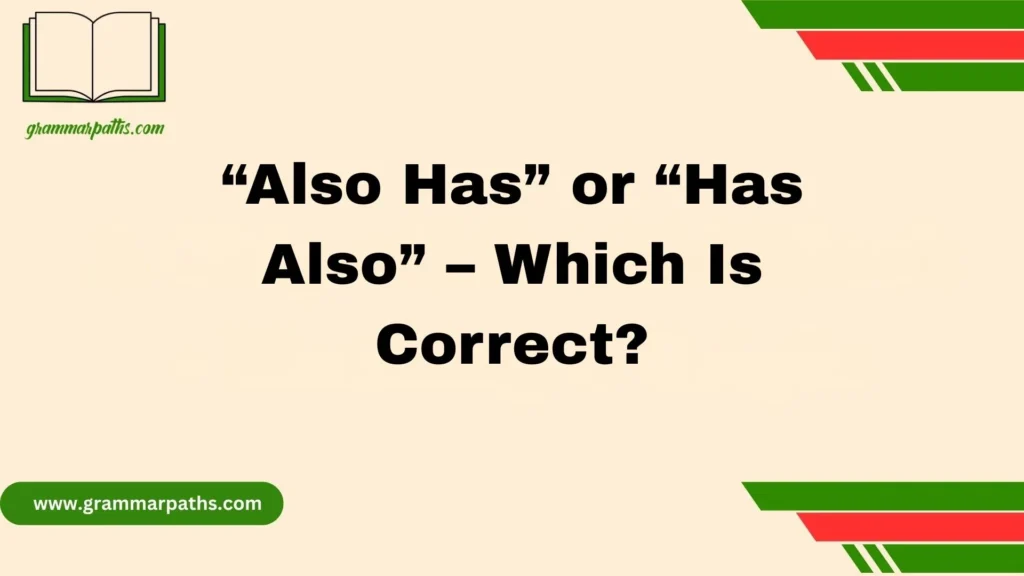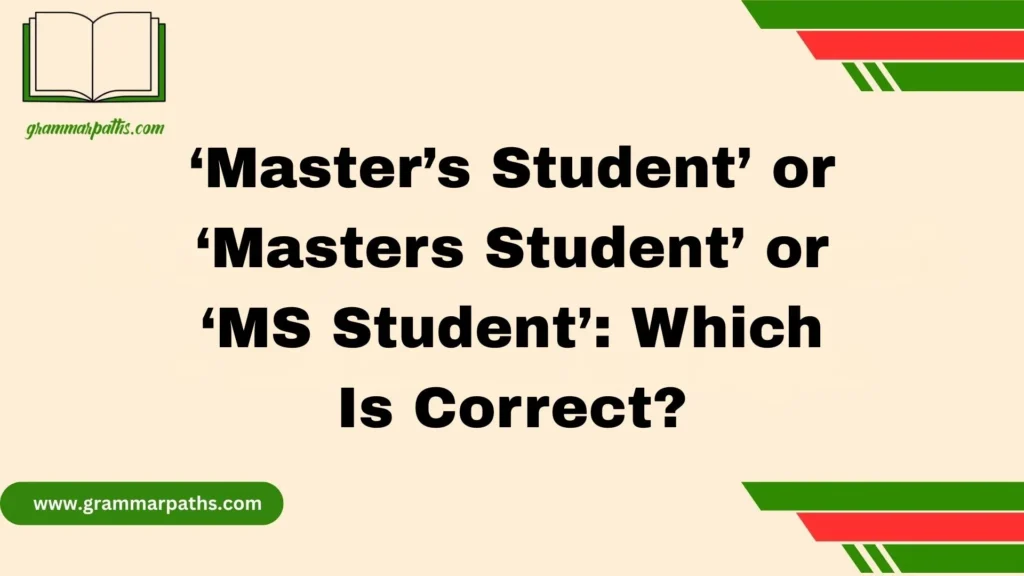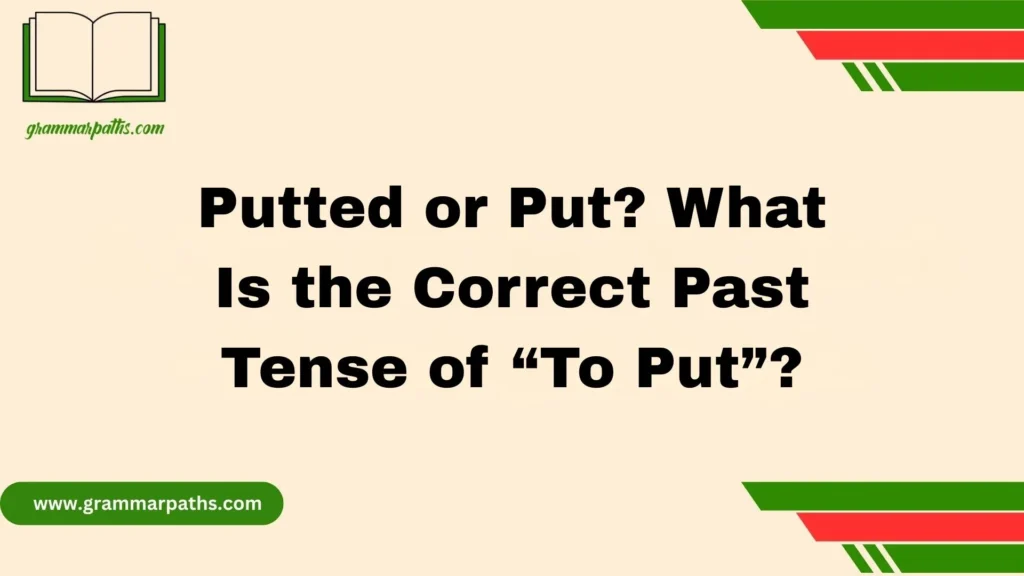I’ve often seen people get confused when trying to establish the proper way to write certain words in English. The differences between pursue and persue create a common struggle, and I remember facing the same issue back in school. My teacher would always remind us that the correct spelling is pursue, while persue isn’t even part of the language. This kind of mix-up usually happens when learners try to guess based on sound rather than checking the actual usage.
When writing an article or even a short note, it helps to explore trusted sources that provide reliable information so you can spell words correctly. Over time, I noticed how practicing the usage of tricky words in context improved my writing flow. By double-checking and learning the differences, I could confidently write with the proper style and avoid errors that leave readers questioning. That habit didn’t just fix one mistake—it built my trust in the English language and made me a better communicator.
Persue vs. Pursue — The Common Mix-Up
So why do so many people write persue instead of pursue?
A few reasons stand out:
- Phonetic similarity: Both look and sound almost identical. Since “pursue” has a softer “u” sound, people assume it should be spelled “persue.”
- Typing errors: On a keyboard, swapping the “u” and “e” is a common slip.
- Autocorrect: While most devices correct “persue” to “pursue,” some older systems don’t.
- Exposure to mistakes: The more people see persue online, the more likely they are to believe it’s correct.
Real-world examples of confusion:
- A job ad once read: “We encourage applicants to persue leadership opportunities.”
- Students often write: “I want to persue my master’s degree in economics.”
- On social media: “Don’t be afraid to persue your dreams.”
In all of these, the intention was clear, but the spelling was off. Even if the meaning gets across, errors can make writing appear careless.
The Correct Spelling: Pursue
Let’s set the record straight. The only correct spelling is pursue.
- Persue = Incorrect
- Pursue = Correct
Spelling breakdown:
- Starts with pur-
- Ends with -sue
Think of it as two small words joined together: pur + sue.
Pronunciation:
- /pər-ˈsü/ (per-SOO)
The “r” is lightly pronounced, and the “sue” carries the emphasis.
Meaning and Usage of “Pursue” in American English
The verb pursue means to chase, follow, or strive to obtain something. In American English, it’s versatile and widely used across contexts.
Here are its main uses:
Legal Context
- “The district attorney decided to pursue charges against the suspect.”
Meaning: to continue with legal action.
Academic Context
- “She plans to pursue a degree in psychology.”
Meaning: to work toward earning something academically.
Career Context
- “He left his corporate job to pursue a career in filmmaking.”
Meaning: to follow a professional path with determination.
Personal Context
- “Everyone has the right to pursue happiness.”
Meaning: to seek personal fulfillment or joy.
| Context | Example Sentence | Meaning |
| Legal | Pursue charges | Continue legal action |
| Academic | Pursue a degree | Work toward a qualification |
| Career | Pursue a promotion | Strive for professional advancement |
| Personal | Pursue happiness | Seek personal joy and satisfaction |
Literal vs. Figurative Use of “Pursue”
The word pursue works both literally and figuratively.
Literal Use
- “The detective pursued the suspect down the street.”
Here, the word describes a physical chase.
Figurative Use
- “She pursued her dream of becoming an astronaut.”
Here, it represents striving for an abstract goal.
| Usage Type | Example | Meaning |
| Literal | Pursue a thief | Physically chase |
| Figurative | Pursue a dream | Strive toward ambition |
This dual role makes “pursue” a flexible and powerful verb.
Memory Tricks to Remember the Correct Spelling
Struggling to remember whether it’s persue or pursue? Try these hacks:
- Court Connection: Think of the word sue (as in filing a lawsuit). Since you “pursue” legal cases, the word ends in -sue.
- Word Family: If you know pursuit or pursuer, the spelling naturally lines up.
- Visual Cue: Picture the word like this → pur-sue. The “sue” part is always at the end.
These small tricks help lock the correct spelling into memory.
Historical Background: The Evolution of “Pursue”
Words in English often have long, winding histories, and pursue is no exception.
- Old French Roots: From poursuir, meaning “to follow, chase, or continue.”
- Latin Origin: From prosequi, meaning “to follow after.”
- Middle English Variations: Early English texts showed multiple spellings like poursue, pursuwe, and occasionally persue.
By the 1600s, spelling in English began to standardize. Dictionaries, printing presses, and education systems cemented pursue as the correct form.
That’s why today, persue isn’t considered an alternative spelling—it’s simply a mistake.
“Pursue” in Literature and Famous Quotes
The word pursue carries weight in literature, often symbolizing ambition, desire, or struggle.
Classic Examples:
- Shakespeare: “If music be the food of love, play on, give me excess of it, that, surfeiting, the appetite may sicken, and so die. That strain again! it had a dying fall: O, it came o’er my ear like the sweet sound, that breathes upon a bank of violets, stealing and giving odour! Enough; no more: ’Tis not so sweet now as it was before. O spirit of love! how quick and fresh art thou, that, notwithstanding thy capacity, receiveth as the sea, nought enters there, of what validity and pitch soe’er, but falls into abatement and low price, even in a minute: so full of shapes is fancy that it alone is high fantastical.” (Though not directly “pursue”, his works use the theme of pursuit of love often.)
- Ralph Waldo Emerson: “Do not go where the path may lead, go instead where there is no path and leave a trail.” (Encourages pursuing originality.)
- Thomas Jefferson: “…life, liberty, and the pursuit of happiness.” (Declaration of Independence).
Inspirational Quotes:
- “You must pursue your goals relentlessly.”
- “Success comes to those who pursue it with patience.”
The literary and cultural weight of the word makes it timeless.
Common Mistakes and How to Avoid Them
Besides mixing up persue and pursue, people often confuse the word with others.
Frequent Mistakes:
- Persue instead of pursue
- Peruse (which means to read carefully or examine)
- Presume (which means to assume or suppose)
Quick Fix Tips:
- Proofread carefully.
- Say the word out loud—“pursue” has the “sue” sound at the end.
- Use a spell-check tool but don’t rely only on it.
Practical Guide: When and How to Use “Pursue” in Your Writing
Knowing the meaning isn’t enough—you need to use it correctly in writing.
Professional Writing
- “We intend to pursue growth opportunities in international markets.”
Academic Writing
- “The research team will pursue a longitudinal study on climate change.”
Creative Writing
- “He pursued her through the foggy London streets.”
Everyday Writing
- “I’m pursuing new hobbies this year.”
Example Correction:
“She decided to persue a degree in law.”
“She decided to pursue a degree in law.”
Using pursue correctly signals precision and professionalism.
Conclusion
The debate between persue and pursue really comes down to knowing the correct spelling and practicing its proper usage. While many people feel confused and even struggle with the differences, the truth is simple: pursue belongs in the English language, and persue does not. By taking the time to explore, learn, and establish the proper form, writers can use these words correctly and confidently in any article or communication.
FAQs
Q1: Which spelling is correct, pursue or persue?
A1: The correct spelling is pursue. Persue is not a recognized word in the English language.
Q2: Why do people get confused between pursue and persue?
A2: Many people rely on sound when writing, which makes them confused about the spelling. The similar pronunciation causes the struggle.
Q3: How can I remember the proper spelling of pursue?
A3: Think of it as a habit: always double-check the usage in reliable sources or an article that can provide accurate information.
Q4: What is the meaning of pursue?
A4: To pursue means to follow, chase, or work toward something with effort and focus.
Q5: Can persue ever be used correctly?
A5: No. Persue is not part of the English language and should be avoided in both writing and speaking.

Emma Brooke is a passionate language expert and contributor at GrammarPaths.com, where she helps learners navigate the complexities of English grammar, idioms, and effective writing. With a strong academic background and years of teaching experience, Emma excels at turning tricky grammar rules into simple, practical lessons that readers can easily grasp.












